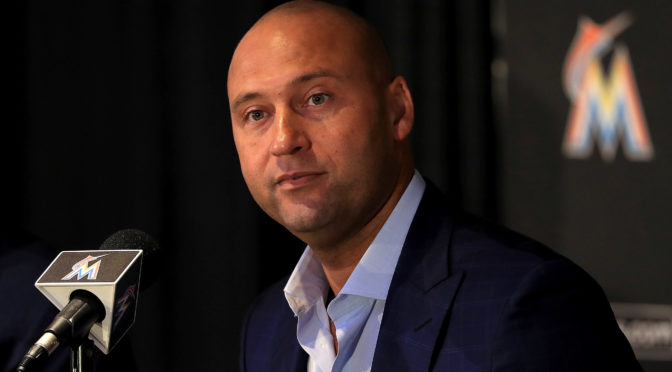Increasingly in the sports world, former – and even current – sports stars are taking ownership stakes in franchises. Could China be part of this growing trend?
Google “David Beckham” these days and right below the tabloid stories about strife with Victoria will be links to his MLS franchise in Miami. Likewise, Derek Jeter, now that he has finally settled down, is out of the gossip pages and back into the sports headlines thanks to his 4% stake in – and CEO role with – the Miami Marlins.
There are plenty of other well known examples: Michael Jordan (majority owner of Charlotte Hornets), LeBron James (stake in Liverpool FC) , Shaquille O’Neal (stake in Sacramento Kings), Venus & Serena Williams (stake in Miami Dolphins).
And China has its own too – Yao Ming – who until very recently was the sole owner of the Shanghai Sharks in the Chinese Basketball Association (CBA). In 2009, Yao bought the team – with whom he won a championship in 2002 just weeks before going #1 in the NBA Draft – and rescued them from financial peril, but had to divest his shares in the Sharks after becoming boss of the league earlier this year.
Now, news is circulating this week that another sports franchise in the country is about to be purchased by a major sporting star, and it’s likely that it won’t be the last.
I’ve written before about foreign owners in China, particularly when it comes to foreign investment in Chinese football. But in the case of athletes becoming owners, it just makes sense. For a start, they’ve been involved in sports all their lives, so the interest and passion is clearly there; secondly, while it takes very different skills to be a successful sports executive, the athletes have witnessed aspects of the business side throughout their own playing careers and have built up networks of people who are well placed to help; and lastly – and perhaps most importantly – with athletes earning more than their predecessors on a relative basis each year, many of them have a few million $$ sitting in the bank and are only too happy to spend on a team.
In China, the sporting landscape is not nearly as clear as elsewhere: some leagues have yet to become professional, while others are only just beginning to scratch the surface of commercialization. Restrictions may also be in place that prevent or limit foreign ownership, although regulations and policies in China are often fluid, and subject to change at a moment’s notice.
But what is certain is that, as China continues on its quest to building the largest sports economy in the world – with the target of being worth $800 billion annually by 2025 – prospective owners from all over the world will be eyeing opportunities in China and looking to get in early.
Watch this space…!



jeter has 4 percent of the marlins, not 20%
Thanks, updated. The 20% is his voting share, I believe.